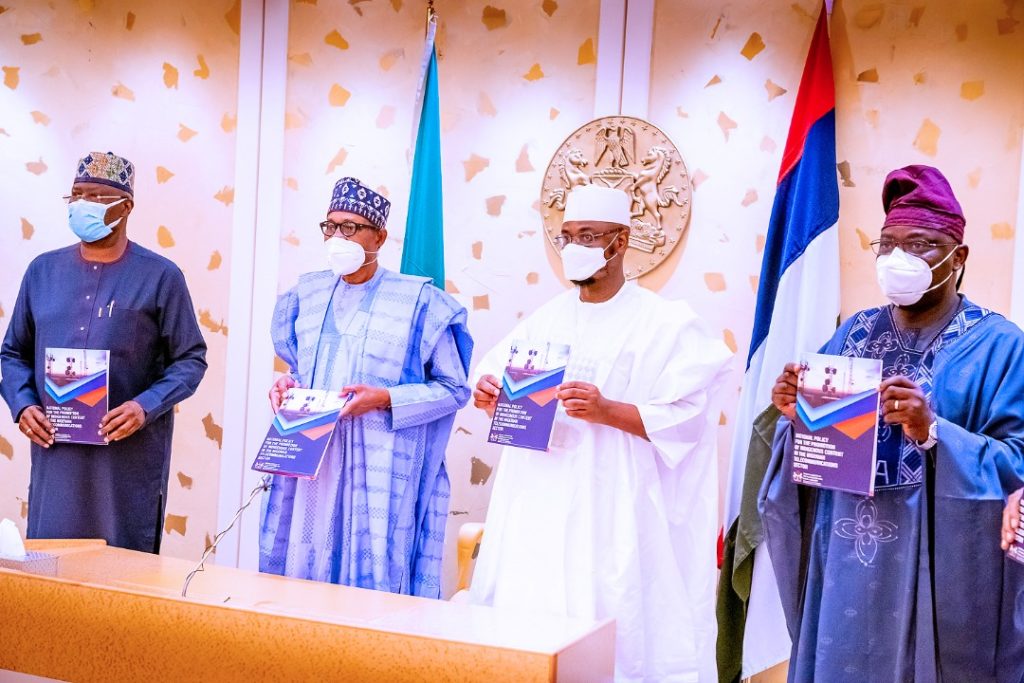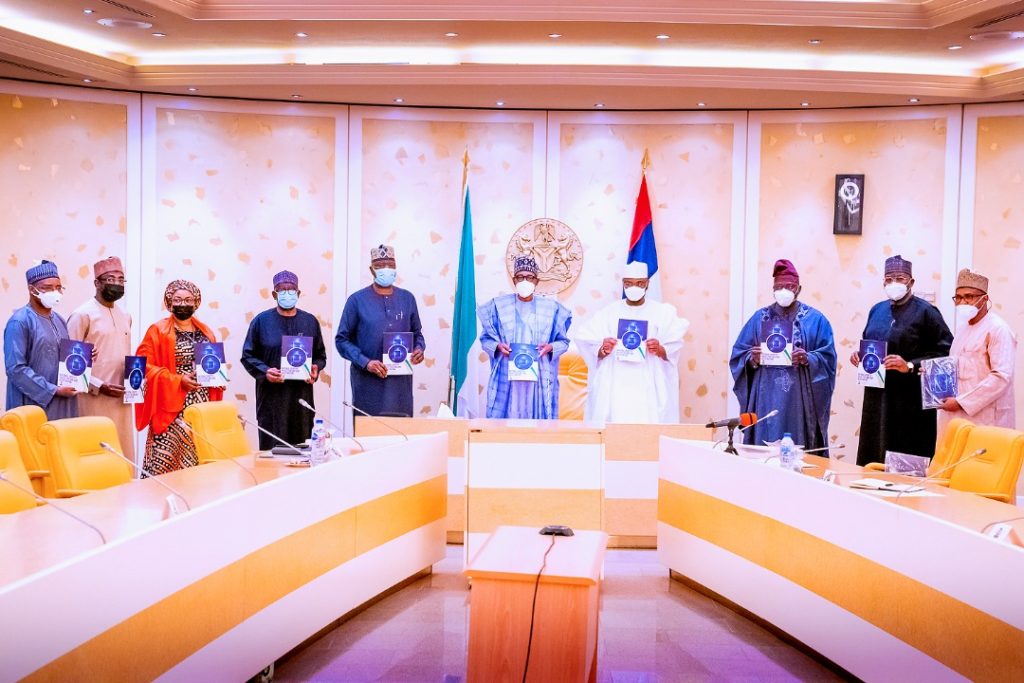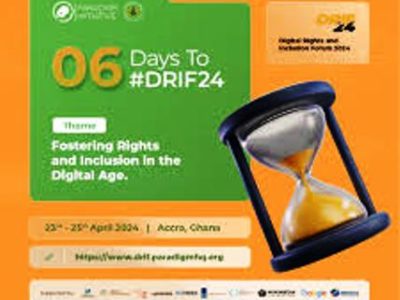President Muhammadu Buhari on Thursday, May 6 launched two new policies: National Policy for the Promotion of Indigenous Content in Nigerian Telecoms Sector and Revised National Identity Policy for SIM cards registration.
During the ceremony at the presidential villa, Abuja, the president received his National Identity Number (NIN) card from the Minister of Communications and Digital Economy, Dr Isa Ali Ibrahim Pantami who was accompanied by heads of agencies under his ministry.
While calling on all Nigerians to fully participate in the ongoing NIN registration and the NIN/SIM linkage across the country, the president said the exercise was crucial to providing a digital framework required to combat insecurity and strengthen the nation’s economy.
According to him, proper identification of all Nigerians and legal residents in the country as well as the ability to conveniently access a national database will provide the impetus for more effective planning and security implementation.
His words: “The NIN will cover one of the weaknesses in our security structure. We will be able to easily identify and know the personality of Nigerians. We will identify people easily, including the crooks.
“The National Identification Number is the foundational digital ID for the country; both Nigerian citizens and legal residents are expected to obtain the NIN. It will provide access to government services and will give government useful insights that will enable us to utilize scarce resources in a more efficient way.”
The first National SIM policy was launched in February 2020. The president expressed confidence that the revised policies fully aligned with his administration’s objectives in respect of economic development, security and anti-corruption.
The National Policy for Indigenous Content in the Nigerian Telecommunications Sector is targeting to have more Nigerians as active participants in the telecommunications sector as in other sectors of the economy.
While expressing satisfaction with the progress made in the ICT sector, the president assured that the ICT sector was critical to its goal for economic diversification.
He said: “the Digital Economy sector has made significant progress and recorded a number of unprecedented achievements since we expanded the mandate of the Ministry of Communications to include the digital economy mandate.
“The Information and Communications Technology sector was the fastest growing sector in both the fourth quarter of 2020 and the entire year 2020, based on the Report by the National Bureau of Statistics.
“The sector’s 14.70 per cent double-digit growth rate played a principal role in supporting our country to exit the recession triggered by the COVID-19 pandemic. The growth rate of the sector exceeded four times the next fastest-growing sector of Q4 2020, the ICT sector which had a growth rate of 3.42 per cent. This is truly commendable.’’
Minister of Communications and Digital Economy commended the president for his commitment to the telecoms sector. He said the NIN registration had recorded a huge success with 54 million Nigerians already captured in the process. He noted the enthusiasm among the citizens to participate in the exercise as according to him “within six months over 12 million enrolled.’’



































